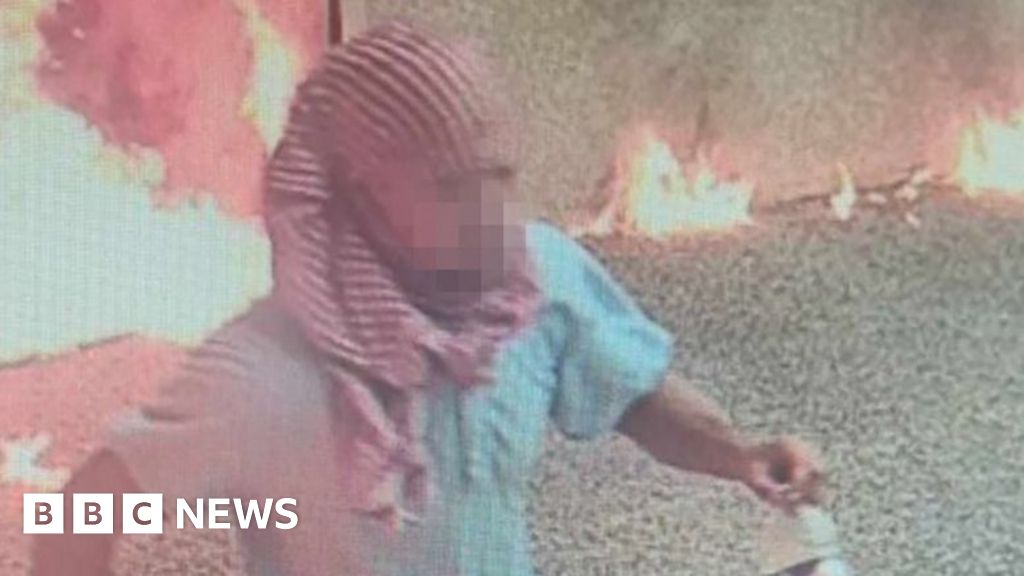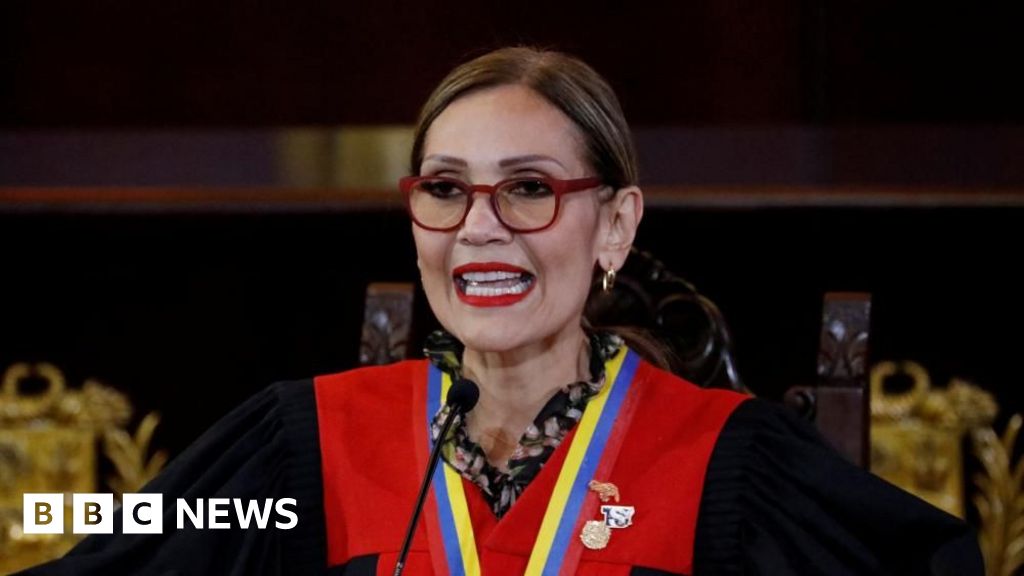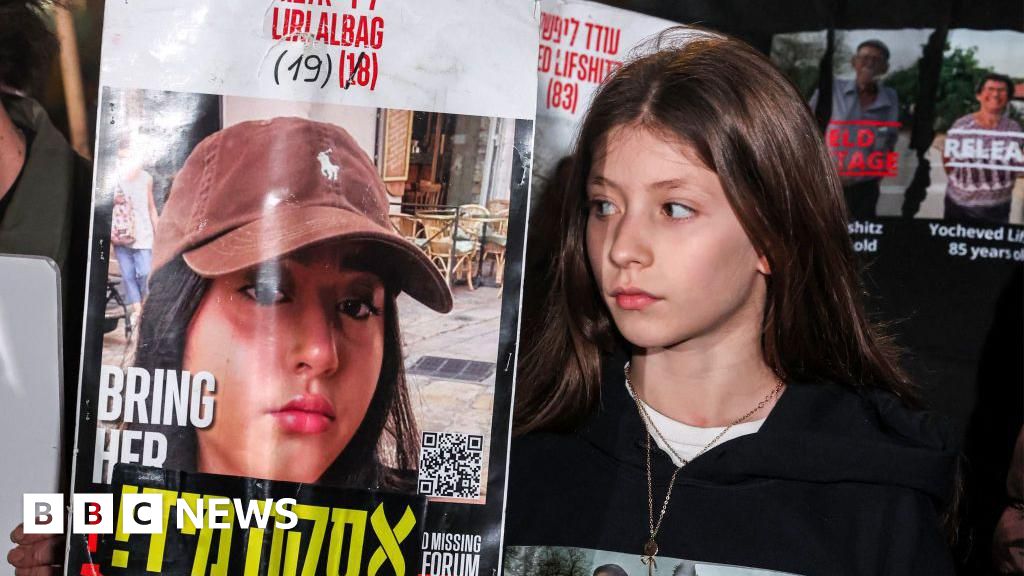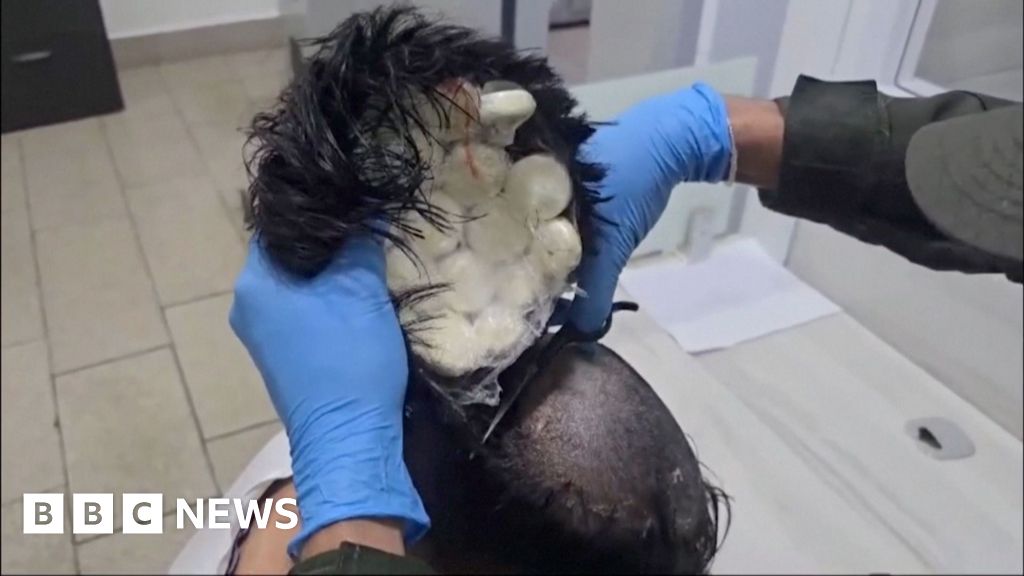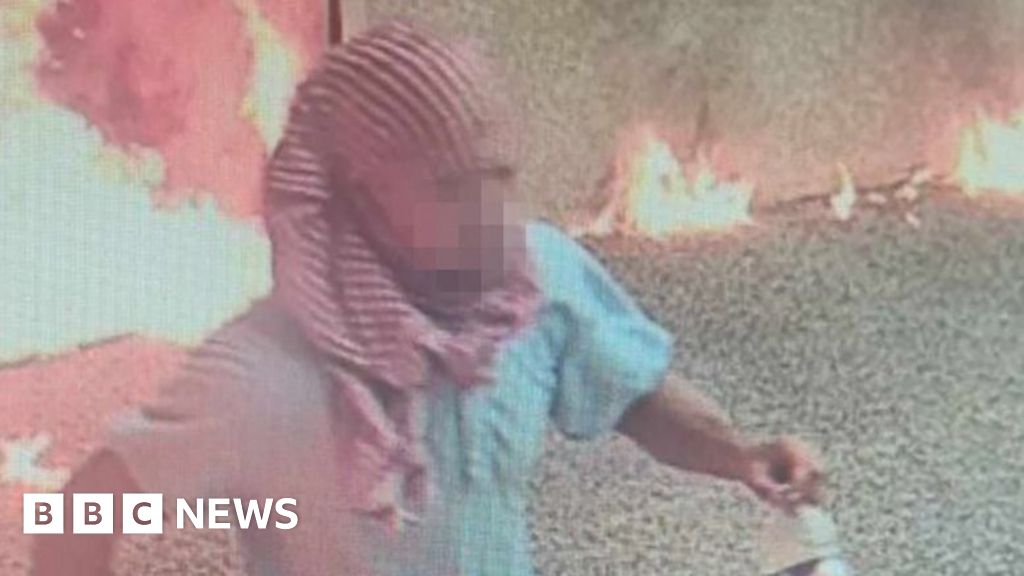
French police say they have arrested a man suspected of setting fires and causing an explosion outside a synagogue in a southern resort.
Interior Minister Gérald Darmanin said “the alleged perpetrator” was detained on Saturday. He added that the police had shown “great professionalism”.
French media reported that the suspect was shot and injured by police after he opened fire on the officers who came to arrest him in the city of Nîmes.
Earlier on Saturday, a police officer was injured in the blast outside the Beth Yaacov synagogue in the nearby seaside resort of La Grande-Motte.
The police officer’s injuries are not said to be life-threatening, following the blast between 08:00 and 08:30 local time (07:00-07:30 BST) on Saturday.
Five people, including the rabbi, were inside the synagogue at the time, authorities said.
The explosion was caused by two cars which were set alight outside
Police sources told French media that one of the vehicles contained a hidden gas canister.
The suspect – who was reportedly carrying a Palestinian flag – also set fire to several entrance doors of the synagogue.
Jewish community leader Yonathan Arfi said the incident was “an attempt to kill Jews” and seemed to have been timed to target Saturday morning worshippers.
President Emmanuel Macron said the incident was “a terrorist act”.
One eyewitness, who asked to remain anonymous, told the BBC: “Just as we were coming round the last corner, there was a huge explosion – a fireball into the air.
“It was surreal, like a film. We didn’t go any further.”
Prime Minister Gabriel Attal and Mr Darmanin visited the site on Saturday evening. Both had earlier condemned the attack, with Mr Attal calling it “an antisemitic act”.
“What happened here shocks and scandalises all Republicans in our country,” Mr Attat said during the visit.
“Because the reality is that once again, French Jews have been targeted, attacked because of their beliefs.”
Mr Attal said an “absolute tragedy” had been “narrowly avoided” as “there would have been victims” if the synagogue had been full of worshippers.
Both Mr Attal and Mr Darmanin said security would be strengthened outside synagogues.
“I want to assure our Jewish fellow citizens and the municipality of my full support,” Mr Darmanin said earlier in the day.
The French Jewish community already live under high security, with many synagogues and Jewish schools under police protection.
A January 2024 report by the Council of Jewish Institutions in France (CRIF) said there had been a nearly threefold increase of antisemitic acts in France between 2022 and 2023.
In May, police shot dead a man after a synagogue in the north-western city of Rouen was set on fire.
In 2015, two days after the attacks on the Charlie Hebdo magazine, four people were murdered in a hostage attack on a kosher supermarket.
The explosion comes amid heightened concerns for Europe’s Jewish community, after the latest survey from the EU’s Fundamental Rights Agency (FRA) published last month found that Jewish people in the bloc continue to face high levels of antisemitism.
More than 8,000 Jews in 13 EU countries, including Germany and France, were interviewed. Some 96% said they had encountered antisemitism in their daily lives.
There has been widespread condemnation of the attempted arson attack across France’s political spectrum.
Left-wing politician Jean-Luc Mélenchon called it an “intolerable crime”, while the far-right National Rally’s Jordan Bardella said it was “a criminal and antisemitic act”.
